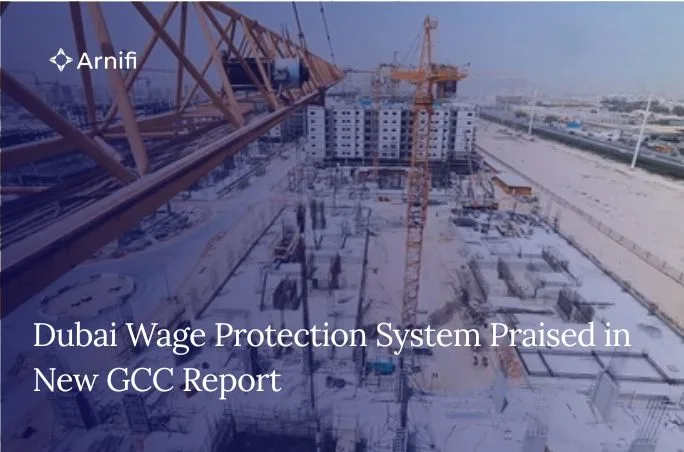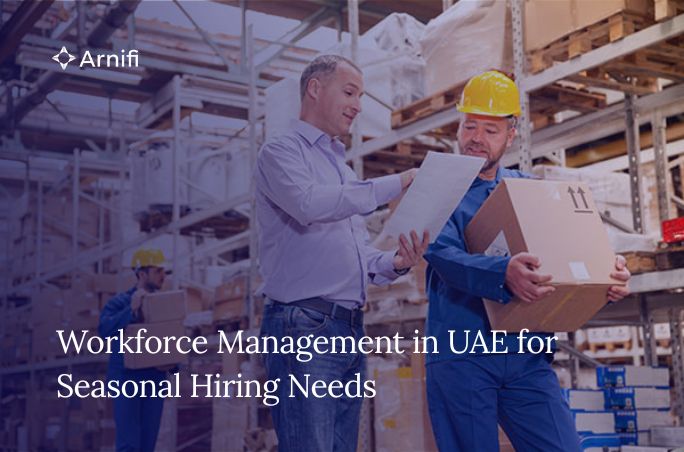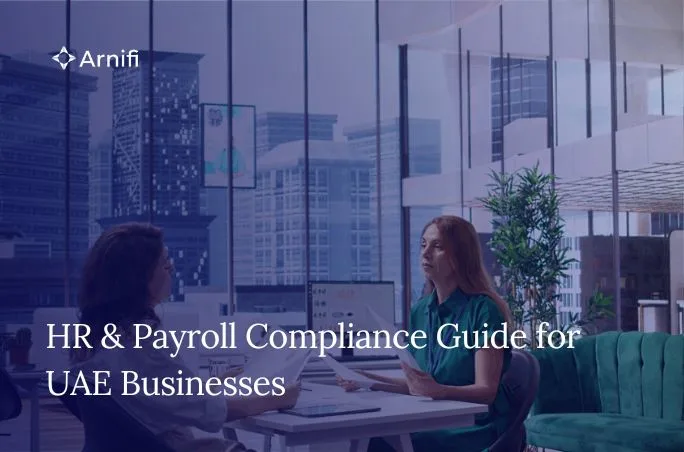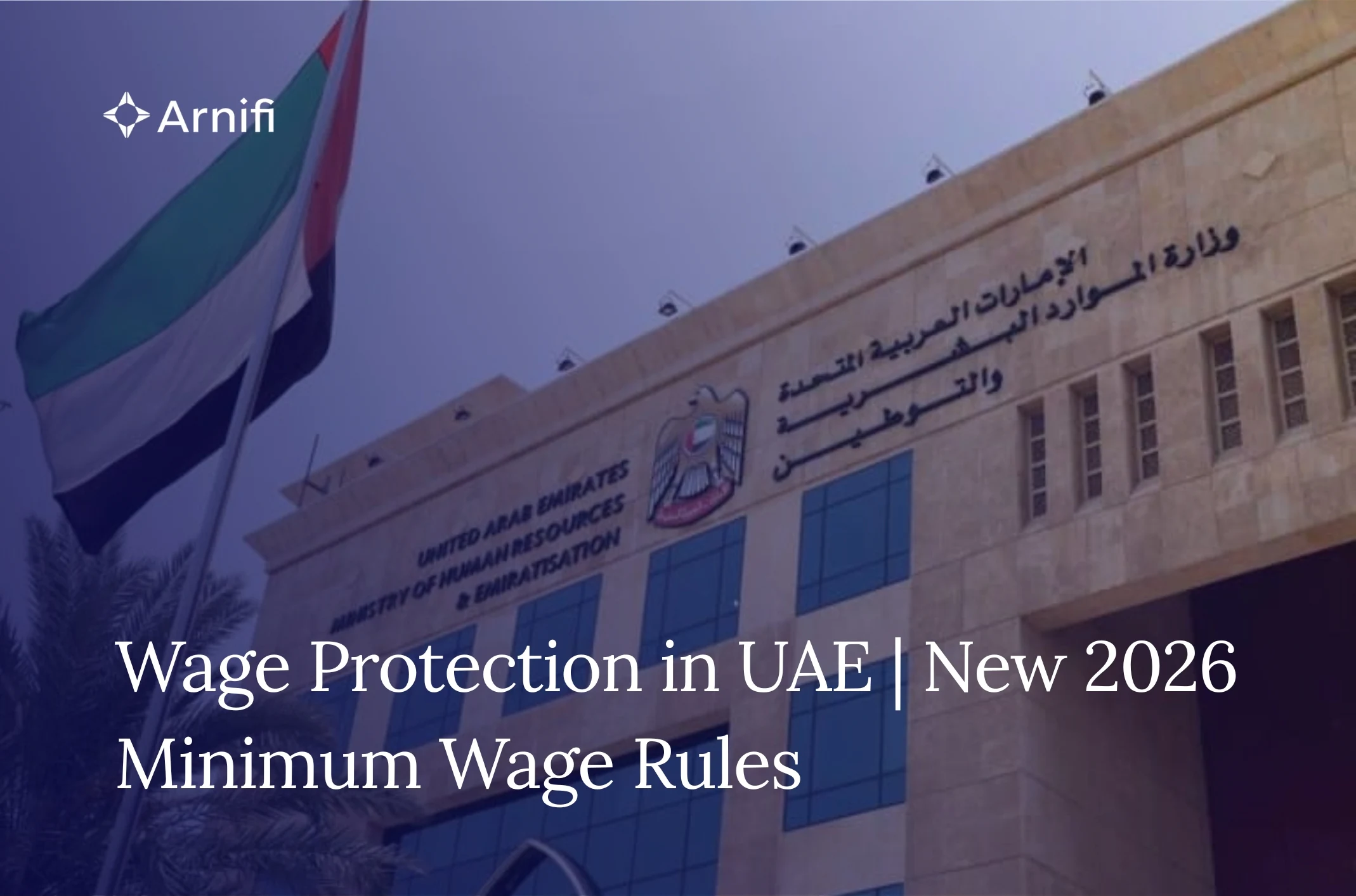GCC Report Applauds Dubai’s Wage Protection System as a Regional Labour Reform Model
by Ishika Bhandari Nov 24, 2025  7 MIN READ
7 MIN READ

Table of contents
A new report from the International Labour Organization (ILO), drafted in partnership with the Executive Bureau of the Gulf Cooperation Council (GCC), has highlighted the increasing successful spread of the Wage Protection System (WPS) in the region, with an implementation framework in Dubai emerging as a benchmark to support transparency, compliance, and worker salary protection.
The report entitled Wage Protection Systems in the Gulf Cooperation Council Countries: A Regional Analysis provides one of the most detailed examinations to date of how Gulf countries have strengthened oversight of wages paid in the private sector. It notes that GCC countries have used measures such as electronic monitoring by means of WPS to reduce the occurrence of wage violations while advancing their labour policies more closely with international standards.
Digital Oversight for Worker Protection
The Wage Protection System is an electronic salary-transfer system allowing the government to monitor wage payments from employers to employees. This monitoring ensures salaries are released on time, in full, and all records are maintained properly.
According to the ILO-GCC report, the system was legislated to be in concert with the ILO Protection of Wages Convention and associated recommendations, injecting global labour norms directly into the national policy arena. For the last 15 years, Bahrain, Kuwait, Oman, Qatar, Saudi Arabia, and the UAE have all instituted and improved their WPS infrastructures, albeit to varying levels of coverage and enforcement.
Dubai’s Implementation Stands Out
The Dubai version of the Wage Protection System has earned praise for its full range and effectiveness. The UAE was one of the first in the GCC to introduce a wage-monitoring mechanism in the digital space, and it has continued to expand through new regulations and enforcement measures.
One of the major milestones was the DMCC Free Zone in January 2024, announcing that all companies registered within its jurisdiction would disburse salaries strictly through the WPS. This pronouncement was widely acknowledged by labour observers, who noted that free zones had been relatively inconsistent in their levels of compliance.
The report further notes that WPS has indeed been the pillar of wage stability in Dubai, ensuring that workers, especially migrant labourers in the private segment, have received their wages in a timely and accountable manner. The digital trail provided by the system allows the authorities to swiftly identify instances of delays and flag the companies involved in noncompliance for remedial action.
High-Level Support for Gulf Labour Reforms
The report launch at the ILO headquarters in Geneva saw ILO Director-General Gilbert F. Houngbo praising the GCC states for their collaboration in enhancing labour governance. He said that the evolution of WPS is testimony that regional cooperation can yield effective and tangible improvement in matters of labour market transparency.
Mohammed Al-Obaidli, Director-General of the GCC Executive Bureau for Labour and Social Affairs, supported Houngbo, terming the Gulf wage-protection advancements “a laudable model for nations aspiring to enhance transparency and ensure fairness in wage payments globally.”
The findings were similarly received with approval from the GCC Secretary General, contending that this report confirms the member states’ commitment to protecting the rights of workers, sustaining wage stability as a key ingredient of regional developmental strategies.
Progress Achieved — but Challenges Remain
While the ILO report documents considerable advances, it also points out areas where further improvements remain necessary. Some of the hurdles mentioned are:
- Coverage gaps: Although several free zones have implemented WPS mandates, there remains patchy coverage in some places.
- Enforcement disparities: The WPS relies on enforcement for its effectiveness. Regions with a stronger enforcement environment will see the WPS function better than those that do not.
- Awareness among workers: Many workers are oblivious to how the WPS operates, thereby constraining their ability to report discrepancies or even understand their rights.
- Technical integration issues: Many smaller companies face hurdles with digital requirements or understanding compliance obligations.
In the ILO and GCC Executive Bureau’s plans to put together regional workshops based on the report’s findings, these workshops will assist policymakers to better strengthen the wage-monitoring infrastructure, improve complaint-resolution mechanisms, and expand worker awareness.
Dubai’s Workforce Benefits Directly
The Wage Protection System has delivered considerable advances in financial security and transparency for workers in Dubai, especially expats who form a sizeable chunk of the private-sector workforce.
Timely salary payments
Workers now report fewer cases of salary delays owing to the automated monitoring of the system and the imposition of penalties on employers who do not comply with it.
Improved dispute resolution
With the documentation of salary transfers in the electronic form, workers can contest more readily for incomplete or absent payments. Authorities may utilize the digital evidence to present mediation and adjudication for the quick settlement of disputes.
Reduced wage theft
Apart from establishing visibility to salary payment records, the WPS also minimizes any risks of employers withholding or making illegal deductions of salaries in the process.
A Broader Context of Labour Reform
Wage protection in Dubai relates to a much bigger context of labour reform in the UAE. Other recent features of this reform include:
- The introduction of a voluntary pension scheme for expats, replacing traditional end-of-service gratuities
- Enhanced Unemployment Insurance Scheme
- mandatory health insurance for private-sector employees
- digitalisation of labour contracts, residency processes, and complaint systems
A Global Model for Transparent Wage Governance
- One of the most crucial insights from the ILO-GCC report is that the digital wage-monitoring systems instituted in the Gulf, with a particular focus on Dubai, have now attained the status of global references in wage governance.
- The ILO says any country willing to control wage theft and payroll manipulation should consider implementing systems that are similar to these, especially those with large populations of migrant workers. The report further stresses that the WPS presents modern scalability and transparency in labour protection, matching international best practices.
The analysis took place under the ILO’s FAIRWAY Programme, supported by international development partners, asserting the global importance of the GCC wage-protection reforms.
Looking Ahead
As the GCC continues to refine labor regimes, the expanded Wage Protection System remains one of the strategic priorities. The ILO-GCC report states that it offers several recommendations for improvement in the future:
- Widen the WPS coverage to all sectors and free zones
- Strengthen enforcement by inspection and penalties
- Promote awareness and educate workers
- Expand the digital infrastructure to enable smooth compliance
- Foster social dialogue between the government, employers, and workers
For Dubai, these recommendations dovetail with its ongoing economic development strategy, with worker welfare, regulatory transparency, and international competitiveness at its heart.
Conclusion
The ILO’s fresh regional analysis corroborates what labor experts have stated for many years: Dubai’s Wage Protection System has emerged as one of the most powerful labour-governance instruments in the Gulf. Dubai and the UAE have reduced wage violations and increased the trust of employees and employers by mandating electronic wage transfers, strengthening oversight, and expanding coverage to the private sector.
As other cities and countries search for models to combat wage theft and protect vulnerable workers, Dubai’s WPS stands to become a global benchmark, one that shows how meaningful benefits to millions of workers can accrue through digital innovation and firm regulatory commitment.
Top UAE Packages

Related Articles
Top UAE Packages



